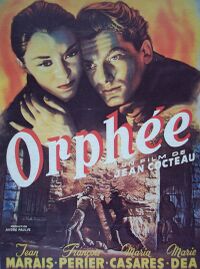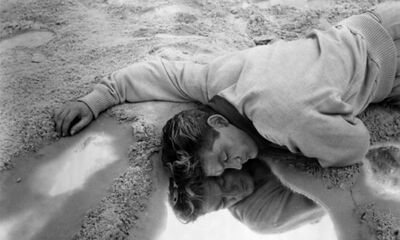Orphée: Difference between revisions
No edit summary |
No edit summary |
||
| (3 intermediate revisions by 2 users not shown) | |||
| Line 1: | Line 1: | ||
[[File: | [[File:Orphée.jpg | 200px | right | thumb |Orphée film poster]] | ||
==Relevance== | ==Relevance== | ||
[[Jean Marais]] stars in this film and a still of him became the [[This Charming Man]] cover. | |||
[[File:Orphée_still_TCM.jpg|400px|thumb|none|Jean Marais in an Orphée still that was used as cover art.]] | |||
{{Page | {{Page | ||
|DiscogsArtistId= | |DiscogsArtistId= | ||
|WikipediaPageTitle=Orpheus_(film) | |WikipediaPageTitle=Orpheus_(film) | ||
}} | }} | ||
[[Category:Influences on Morrissey - Film and Television]] | [[Category:Influences on Morrissey - Film and Television]] | ||
Latest revision as of 14:36, 21 February 2023
Relevance
Jean Marais stars in this film and a still of him became the This Charming Man cover.
Mentioned In
Wikipedia Information
 |
Orpheus (French: Orphée [ɔʁfe] ; also the title used in the UK) is a 1950 French romantic fantasy drama film directed by Jean Cocteau and starring Jean Marais. It is the central part of Cocteau's Orphic Trilogy, alongside The Blood of a Poet (1930) and Testament of Orpheus (1960). Set in contemporary Paris, the film is a variation on the Greek myth of Orpheus and Eurydice, and is partially based on Cocteau's 1926 play of the same title.

